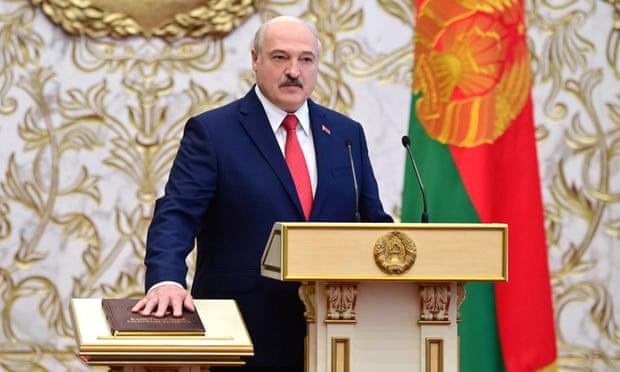A State-sponsored skyjacking can’t go unanswered
Alexander Lukashenko, the president of Belarus, has gone too far. Hijacking a commercial airliner to kidnap an opposition journalist is simply too dangerous a violation of international norms for the United States, the European Union and other responsible states to let pass without serious consequences.
A throwback to the regional bosses of the Soviet era, Lukashenko has become steadily more repressive and autocratic over his 27 years in power. With neighbouring President Vladimir Putin of Russia as kindred spirit and protector, Lukashenko has consistently shrugged off criticism and sanctions from the West.
So when hundreds of thousands of Belarusians finally took to the streets after brazenly fraudulent elections in 2020, Lukashenko showed no hesitation in violently cracking down, and he has continued since to hound opposition leaders, journalists and demonstrators alike. He has sent as many as 35,000 people to prison and many into exile.
Yet that didn’t silence online opposition. So on Sunday (23), Lukashenko hijacked a Ryanair jetliner flying over Belarus with 171 passengers aboard to kidnap one of his premier gadflies, Roman Protasevich. A 26-year-old journalist who was a co-founder and former editor of the Nexta channel on the social media platform Telegram — a popular place for Lukashenko’s many foes to organize protests and share information — Protasevich was living in exile in Lithuania.
Protasevich was flying from Athens to Vilnius, the Lithuanian capital, when, on the pretext of a bomb threat, Belarusian authorities ordered the plane to land in Minsk, Belarus’ capital — with a jet fighter dispatched to make sure it did. No bomb was found, of course, but the terrified journalist and his girlfriend were taken off the plane, and several passengers presumed to be KGB agents (it’s still called that in Belarus) were not on board several hours later when the flight was allowed to leave.
The outcry from the EU and the United States over this act of transnational repression was swift and loud. “There will be a very strong answer because it is outrageous behaviour and Lukashenko and his regime have to understand that this will have severe consequences,” declared Ursula von der Leyen, the president of the European Commission. The US secretary of state, Antony Blinken, demanded the “immediate release” of Protasevich. The European Union banned EU-based flights over Belarusian territory and was working to ban Belarusian flights over the bloc. Michael O’Leary, the chief executive of Ryanair, called it “a case of state-sponsored hijacking.” Ireland, where Ryanair is based, and Lithuania, where the flight was headed, demanded stern reprisals.
Lukashenko was unfazed and on Monday (24) went on with business as usual — signing laws further cracking down on dissent. Russia promptly came to Lukashenko’s defence, with a Foreign Ministry spokeswoman recalling that several years ago the United States pressured a plane carrying Bolivia’s president, Evo Morales, to make an unscheduled stop in Vienna after European countries refused it permission to fly over their territory on suspicion that whistleblower Edward Snowden was on board.
That’s whataboutism, of course, but it is worth revisiting the facts. In 2013, Snowden had made his way to Moscow, where Morales went to attend an international conference. On the suspicion that Morales would grant Snowden asylum and had taken him aboard his flight home, the president’s plane was barred from flying over some European countries and forced to land in Austria. When officials determined that Snowden was not on board, Morales was allowed to continue.
The outcry, especially from Latin America, was fierce. Much of the criticism leveled at the Obama administration at the time was warranted. But there is a difference between denying overflight to a plane and forcing a commercial jetliner to land over a false alarm, accompanied by a warplane.
Lukashenko’s action, moreover, falls into the more worrisome pattern of autocrats prepared to throw international norms to the wind to get at their critics. The vicious attacks on former Russian spies Alexander Litvinenko and Sergei Skripal, Saudi journalist Jamal Khashoggi and the half brother of North Korean dictator Kim Jong-un are among the most notorious such actions.
Forcing down a jetliner may not be in the same category as extraterritorial assassination. But in asserting that overflights are fair game for his war on dissidents, Lukashenko has effectively extended his repressive ways into the realm of aviation hijacking. As Ireland’s foreign minister, Simon Coveney, declared, this was an attack on “an Irish airline, a plane that’s registered in Poland, full of EU nationals, travelling between two EU capitals.”
Lukashenko has gone too far, and the response should be swift. But the episode also underscores a troubling reality: Autocrats looking to extend their repressive ways across international borders are increasingly emboldened to do so. Deterrence, in far too many instances, has failed.
-New York Times


